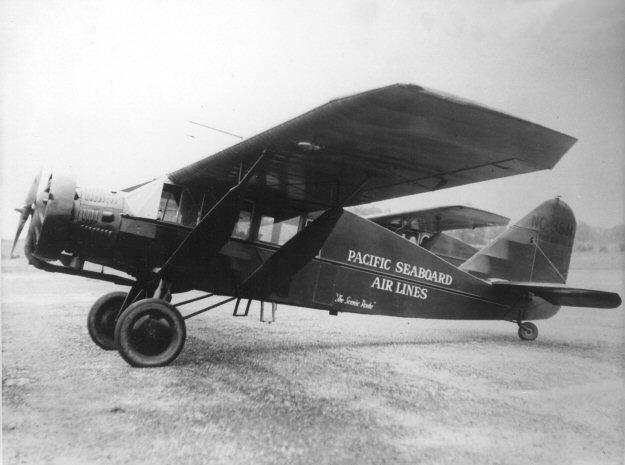Pacific Seaboard Air
Lines Bellanca CH-300 NC35N
(c/n 170)

In 1933 Carleton Putnam, who held an ATP license, formed a new airline
to fly a route from Los
Angeles
(operating out of Grand Central Air Terminal in Glendale) to San
Francisco's Mills Field
with seven intermediate stops. It was labeled "The Scenic
Route". An extension was made to
Sacramento sometime late in 1933. Three Bellanca CH-300s were
used in support of this passenger
only operation. Since the competition was United with their
Boeing 247s it was a wonder that Putnam
was able to stay in business at all. In fact, he realized that
the only way to do so was to obtain an air
mail
contract.. In 1934 the U.S. government canceled all air mail
contracts, had the Army fly the mails
for a while (it was a disaster) and finally re-opened bids for new air
mail routes to the private sector.
Putnam bid on, and incredibly won, the
contract for the carriage of mails between Chicago and New
Orleans up and down the Mississippi Valley. (He actually beat out
Robertson Airplane Service by
1c
per mile). Since service had to be started by 3 June 1934 he
scrambled and flew his three Bellancas
to
Memphis, Tennessee (more or less the mid-way point) and commenced to
fly the mails. Passenger
services
were begun a couple of weeks later. Clearly the name of the
airline didn't fit the new sphere
of
operations and this was changed in 1935 to Chicago & Southern Air
Lines. "The Scenic Route"
became "The
Valley Level Route".
